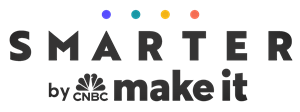The Unseen Struggles of American Workers: Paid Sick Leave and the Pursuit of Passion
March 3, 2025, 11:13 pm
In the United States, the workplace can feel like a double-edged sword. On one side, the promise of a paycheck. On the other, the looming threat of illness and the fear of losing income. As cold and flu season sweeps across the nation, many workers find themselves grappling with a harsh reality: paid sick leave is not a given. In fact, half of U.S. workers are unaware of their rights regarding paid sick leave. This lack of knowledge can be a ticking time bomb, affecting not just individual health but also the overall well-being of the workforce.
The U.S. stands alone among developed nations in not mandating paid sick leave. Instead, workers navigate a confusing maze of state laws and employer policies. This patchwork system leaves many in the dark. A recent survey revealed that 50% of workers don’t know what sick leave they’re entitled to. It’s like wandering through a fog, unsure of where to step next.
Enter technology. A new tool, PaidLeave.ai, aims to illuminate this murky landscape. This AI-driven chatbot offers a lifeline for parents and caregivers, guiding them through the complexities of state benefits. It’s a beacon of hope in a sea of confusion. Yet, even with resources at their fingertips, many workers hesitate to take the leave they deserve. Why? The answer lies in a tangled web of complexity and stigma.
Navigating the bureaucracy of paid leave can feel like climbing a mountain. Workers often face pages of government websites, forms, and requirements. The effort can be overwhelming, leading many to simply give up. This reluctance to engage has a ripple effect. If workers don’t utilize their benefits, employers may see it as a lack of need, leading to cuts in programs. It’s a vicious cycle that perpetuates ignorance and fear.
The cultural stigma surrounding taking time off adds another layer of difficulty. In many industries, the ethos of “hustle” prevails. Workers feel pressured to show up, even when sick. This mentality was glaringly evident during the COVID-19 pandemic, when the tide began to turn. Suddenly, staying home when ill became the norm. Yet, as workplaces return to pre-pandemic routines, the old culture is creeping back in. The fear of being seen as weak or uncommitted looms large.
But there’s a shift happening. Organizations like Moms First and A Better Balance are stepping up to educate workers about their rights. Their initiative, “Right to Rest and Recover,” offers resources and legal support. It’s a call to action for workers to reclaim their right to health. Knowledge is power, and understanding one’s rights can be the first step toward change.
Meanwhile, in a different corner of the workforce, another story unfolds. Emma Knight, a former co-founder of a successful juice company, took a leap of faith to pursue her passion for writing. At 36, she found herself at a crossroads. The juice business thrived, but her heart yearned for storytelling. The decision to leave the financial security of her company was daunting. Yet, it was a necessary step toward authenticity.
Knight’s journey is a testament to the power of following one’s passion. She penned her first novel, “The Life Cycle of the Common Octopus,” which quickly became a bestseller. Her story resonates with many who dream of breaking free from the confines of traditional employment. It’s a reminder that pursuing what you love can lead to unexpected success.
However, the path to fulfillment is rarely smooth. Knight faced fears of financial instability and the challenge of balancing motherhood with her writing aspirations. The sacrifices were real. She traded social outings for quiet nights spent writing. It’s a stark contrast to the hustle culture that often glorifies busyness over meaningful work.
Both stories highlight a common thread: the struggle for balance in a world that often prioritizes productivity over well-being. Workers are caught in a relentless cycle of work and obligation, while dreamers like Knight fight to carve out space for their passions. The tension between these two worlds is palpable.
As we navigate the complexities of work and life, it’s crucial to advocate for change. Workers deserve to know their rights. They should feel empowered to take the time they need to recover from illness without fear of repercussion. At the same time, we must celebrate those who dare to chase their dreams, like Knight. Their journeys inspire others to seek fulfillment beyond the confines of traditional roles.
In the end, the American workforce is a tapestry of stories. Each thread represents a unique struggle, a personal triumph, or a dream waiting to be realized. As we move forward, let’s strive for a future where workers are informed, empowered, and free to pursue their passions without fear. It’s time to break the cycle and create a culture that values health, well-being, and the pursuit of dreams. The road may be long, but every step toward change is a step worth taking.
The U.S. stands alone among developed nations in not mandating paid sick leave. Instead, workers navigate a confusing maze of state laws and employer policies. This patchwork system leaves many in the dark. A recent survey revealed that 50% of workers don’t know what sick leave they’re entitled to. It’s like wandering through a fog, unsure of where to step next.
Enter technology. A new tool, PaidLeave.ai, aims to illuminate this murky landscape. This AI-driven chatbot offers a lifeline for parents and caregivers, guiding them through the complexities of state benefits. It’s a beacon of hope in a sea of confusion. Yet, even with resources at their fingertips, many workers hesitate to take the leave they deserve. Why? The answer lies in a tangled web of complexity and stigma.
Navigating the bureaucracy of paid leave can feel like climbing a mountain. Workers often face pages of government websites, forms, and requirements. The effort can be overwhelming, leading many to simply give up. This reluctance to engage has a ripple effect. If workers don’t utilize their benefits, employers may see it as a lack of need, leading to cuts in programs. It’s a vicious cycle that perpetuates ignorance and fear.
The cultural stigma surrounding taking time off adds another layer of difficulty. In many industries, the ethos of “hustle” prevails. Workers feel pressured to show up, even when sick. This mentality was glaringly evident during the COVID-19 pandemic, when the tide began to turn. Suddenly, staying home when ill became the norm. Yet, as workplaces return to pre-pandemic routines, the old culture is creeping back in. The fear of being seen as weak or uncommitted looms large.
But there’s a shift happening. Organizations like Moms First and A Better Balance are stepping up to educate workers about their rights. Their initiative, “Right to Rest and Recover,” offers resources and legal support. It’s a call to action for workers to reclaim their right to health. Knowledge is power, and understanding one’s rights can be the first step toward change.
Meanwhile, in a different corner of the workforce, another story unfolds. Emma Knight, a former co-founder of a successful juice company, took a leap of faith to pursue her passion for writing. At 36, she found herself at a crossroads. The juice business thrived, but her heart yearned for storytelling. The decision to leave the financial security of her company was daunting. Yet, it was a necessary step toward authenticity.
Knight’s journey is a testament to the power of following one’s passion. She penned her first novel, “The Life Cycle of the Common Octopus,” which quickly became a bestseller. Her story resonates with many who dream of breaking free from the confines of traditional employment. It’s a reminder that pursuing what you love can lead to unexpected success.
However, the path to fulfillment is rarely smooth. Knight faced fears of financial instability and the challenge of balancing motherhood with her writing aspirations. The sacrifices were real. She traded social outings for quiet nights spent writing. It’s a stark contrast to the hustle culture that often glorifies busyness over meaningful work.
Both stories highlight a common thread: the struggle for balance in a world that often prioritizes productivity over well-being. Workers are caught in a relentless cycle of work and obligation, while dreamers like Knight fight to carve out space for their passions. The tension between these two worlds is palpable.
As we navigate the complexities of work and life, it’s crucial to advocate for change. Workers deserve to know their rights. They should feel empowered to take the time they need to recover from illness without fear of repercussion. At the same time, we must celebrate those who dare to chase their dreams, like Knight. Their journeys inspire others to seek fulfillment beyond the confines of traditional roles.
In the end, the American workforce is a tapestry of stories. Each thread represents a unique struggle, a personal triumph, or a dream waiting to be realized. As we move forward, let’s strive for a future where workers are informed, empowered, and free to pursue their passions without fear. It’s time to break the cycle and create a culture that values health, well-being, and the pursuit of dreams. The road may be long, but every step toward change is a step worth taking.

